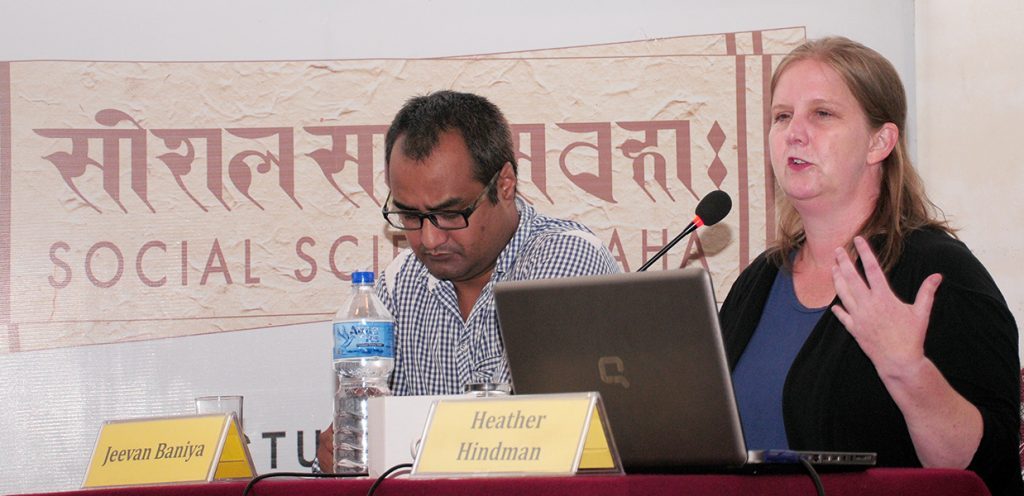Lecture Series
Waves of Alterity: Korea-Nepal Engagement and the Challenge of Area Studies

Heather Hindman
on
Waves of Alterity: Korea-Nepal Engagement and the Challenge of Area Studies
Inter-Asian connections are often dismissed as either strategies of soft power or manifestations of superficial popular culture. This paper examines how these two levels interact in ways not expected by their creators, and are in some cases more influenced by the economic considerations of labour and consumption rather than government policy or trends in fashion. The luggage carousels at Kathmandu’s airport are loaded with blankets and televisions, products often manufactured in South Korea. This lecture looks at how Nepali desire for South Korean goods is shaped by ideas of ‘quality’, complexly considered, as well as rumours circulated by labour migrants rather than state-level concerns or the popularity of Korean boy bands. Although labour migration from Nepal to South Korea is quantitatively less significant than to Gulf countries or India, South Korea holds an important position in the Nepali imagination of the world, out of proportion to the few thousand workers admitted legally every few years through the Employment Permit System authorised by the Korean government. Korean reflections about ‘mountain people’ and Mongolian origins have percolated through Nepali ideas about indigeneity and the ‘Mongol look’, influencing politics, fashion, and racial ideologies. South Korean politicians make diplomatic speeches about how the country was in the ‘same place’ as Nepal just fifty years ago. This lecture attempts to understand how purchasing a Samsung appliance in Qatar might allow Nepalis an access point to the Korean miracle, and what that might mean.
* * *
To listen or download lecture in audio format
Heather Hindman is Associate Professor of Asian Studies and Anthropology at the University of Texas at Austin. She has published Mediating the Global: Expatria’s Forms and Consequences in Kathmandu (Stanford, 2013) and co-authored Inside the Everyday Lives of Development Workers: The Challenges and Futures of Aidland (Kumarian, 2011). Her interests include, gender, bureaucracy, entrepreneurialism, social theory, critical development, transnational labor and finance, as well as the anthropology of garbage and waste disposal sites. She has published in Anthropological Quarterly, HIMALAYA, Studies in Nepali History and Society, Identities, the Journal of Popular Culture and others as well as in several edited volumes.
Professor Hindman has served for several years as President of the Association for Nepal and Himalayan Studies, and has also been the Book Review Editor for the Journal of Asian Studies for Comparative and Transnational scholarship. She is deeply invested in graduate training, working with a half dozen PhD students in the Department of Asian Studies, as well as scholars in Anthropology, Radio, Television and Film (RTF), Sociology and Geography at the University of Texas, as well as several anthropology doctoral candidates in the US, UK and Australia. She frequently travels to Asia for research and presentations, and enjoyed visiting Pakistan through SAI’s programme with Fatama Jinnah Woman University and Sichuan University in summer of 2017 for the International Symposium on Himalayan Studies.
This lecture was organised in collaboration with the Association for Nepal and Himalayan Studies – Kathmandu Centre.
Waves of Alterity: Korea-Nepal Engagement and the Challenge of Area Studies
